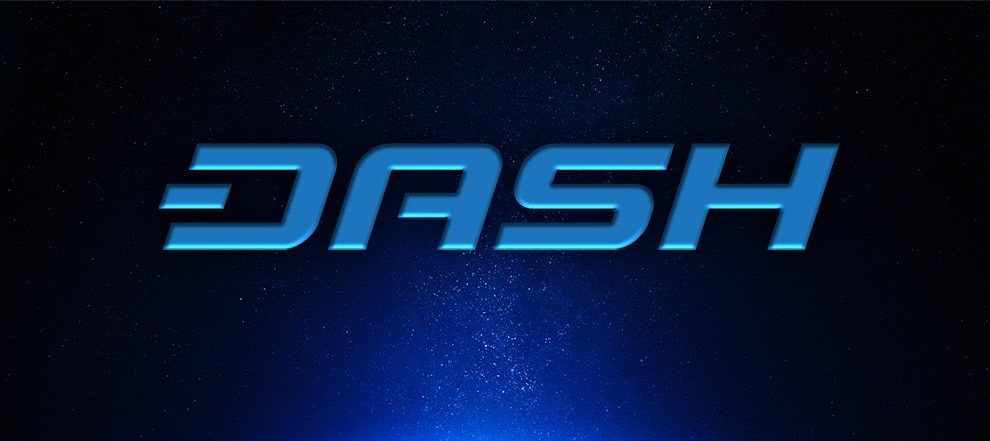Discussion in cryptocurrency terms related to Venezuela this week may have been all about the Petro. However, it seems that it’s another cryptocurrency entirely that has been making progress in that market.
Dash is a cryptocurrency which originally hard forked away from the Bitcoin network in January 2014. It is currently ranked 14th on coinmarketcap.com when projects are compared by way of overall market capitalisation.
Ordinarily where there has been hyper inflation in a country, the news-feed normally follows with confirmation of an up tick in Bitcoin use. However, it appears that it’s Dash that is making the running in Venezuela and it has quickly become the most important market for Dash. Ryan Taylor – the CEO of the Dash Core Group is on record as stating;
“We are seeing tens of thousands of wallet downloads from the country each month.”
The crisis in Venezuela appears to be deepening. Despite the relaunch of the Bolivar and pegging it to the state crypocurrency, the Petro, Taylor indicated an up-tick in activity in recent days following the introduction of the measure;
“We’ve seen 94 new Venezuelan merchants added to DiscoverDash.com since last week, which is about double the normal rate of about 50 merchants per week [over] the last couple of months,”
Speaking in terms of overall progress in the Venezuelan market, Taylor had this to say;
“It took them a long time to get the first 50, first 100 [retailers],” . . . “But at the beginning of July, the number was around 400, and we’re already at 800. We’re at this point signing up more than 200 a month.”
It would appear that the growth is not limited to point of sale. A huge displacement of Venezuelans has occurred with the diaspora spread out across the whole of South and Central America. The onus is on them to support family members that remain back home. That means a need for remittance service use – and in this area, too – Dash is seeing growth.
Read More: VENEZUELA’S PETRO TOKEN BECOMES OFFICIAL UNIT OF ACCOUNT
So why is Dash gaining traction in Venezuela ahead of other cryptocurrencies? It would appear that there are a number of reasons. Central amongst them is the fact that transactions are practically instant and fees are minimal.
The focus of Dash seems to be differentiated from that of other cryptocurrencies with the Dash Core team having a wealth of payments and financial industry experience collectively. As a case in point, their CEO has a background of 17 years industry experience with American Express and Banking and Financial Services Consultancy – McKinsey.
The Dash model is considerably different than practically all other cryptocurrencies as it has a self-funding mechanism built in which means that they can collaborate with vendors – covering integration costs and investing in marketing and promotion. This path cannot be taken by many other cryptocurrencies which are structured to take a more passive approach. Dash Treasury DAO has granted over $33 million to projects to further advance Dash adoption – with $2.3 million allocated to projects in the developing world. In addition to funding, Dash offer support to entrepreneurs to facilitate adoption and use.
Having seen their model gain traction in Venezuela, Eugenia Alcalá, the founder of Dash Venezuela had stated earlier this year that there were plans to replicate that success in other Latin American countries.
In addition to funding, grant recipients also engage with Dash Core developers to provide feedback and get support on infrastructure development. Their feedback has resulted in improvements being made to the underlying software.
At the outset, Dash had a non profit foundation structure. However, funding was hard to come by and there were limitations in how it could be utilised. Subsequently, the structure was changed and the Dash Core Group came into existence and is owned by the network it serves. Resources are drawn from the Dash Treasury System. Unlike most other cryptocurrencies, 45% of fees and new coins go to miners, 45% to master nodes and the last 10% to treasury. This enables the expansive outreach program that Dash have engaged in.
It’s this outreach that seems to be an important part of their formula for success, differentiating them from other cryptocurrencies and it hasn’t gone unnoticed in the industry. Ray Youssef, CEO of Paxful – a crypto exchange aimed at emerging markets remarked that he had heard about and admired their outreach.
As with all projects in this nascent technological space, Dash isn’t without its detractors and criticisms. Crypto-consultant Tone Vays has concerns about the ongoing sustainability of Dash’s governance model;
“If people convert their Dash into something that has a higher probability of lasting for a longer time, that’s great. But if they don’t, they will be scammed or lose all their value and hate all crypto going forward.”
On initial inspection at least, it seems to be a functional digital currency for day to day purposes taking a more practical approach to bring about adoption. With more use, we will find out if there are technical difficulties that it needs to overcome.







